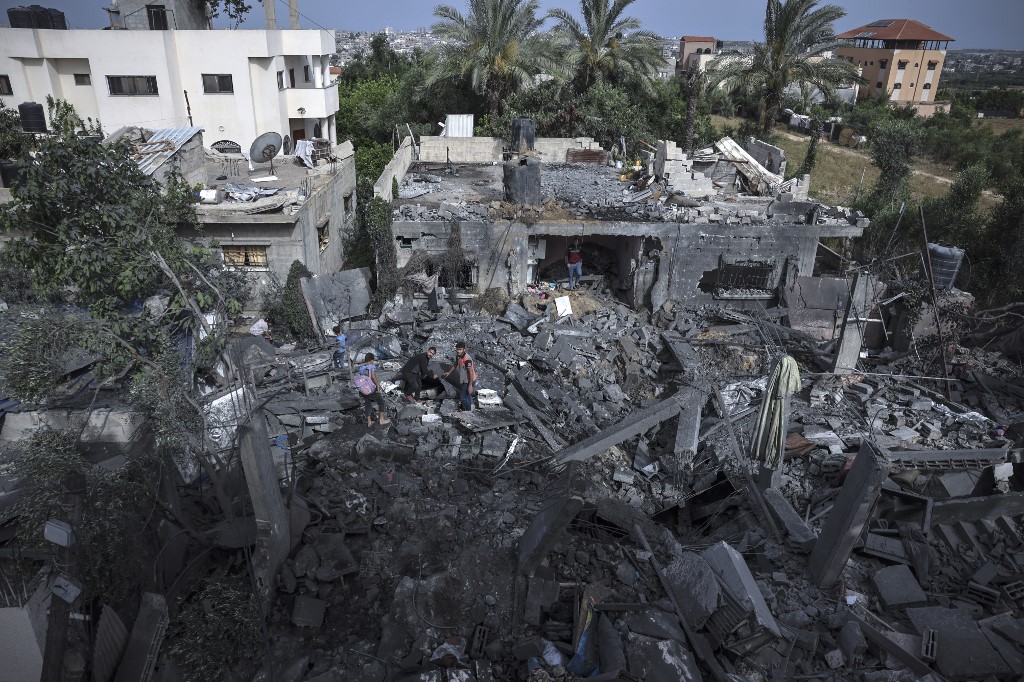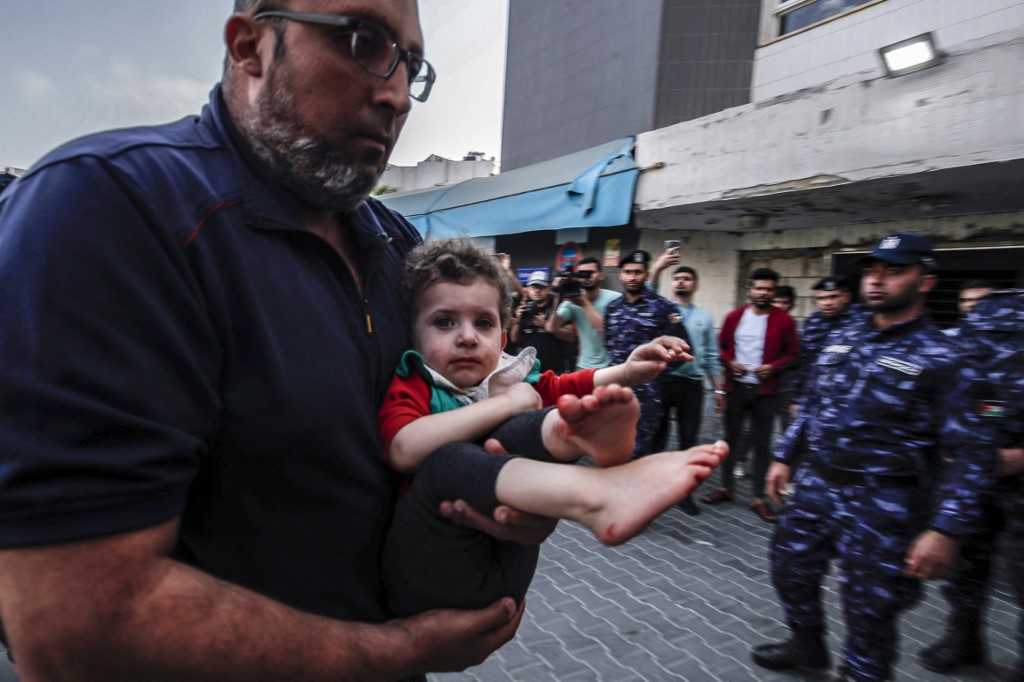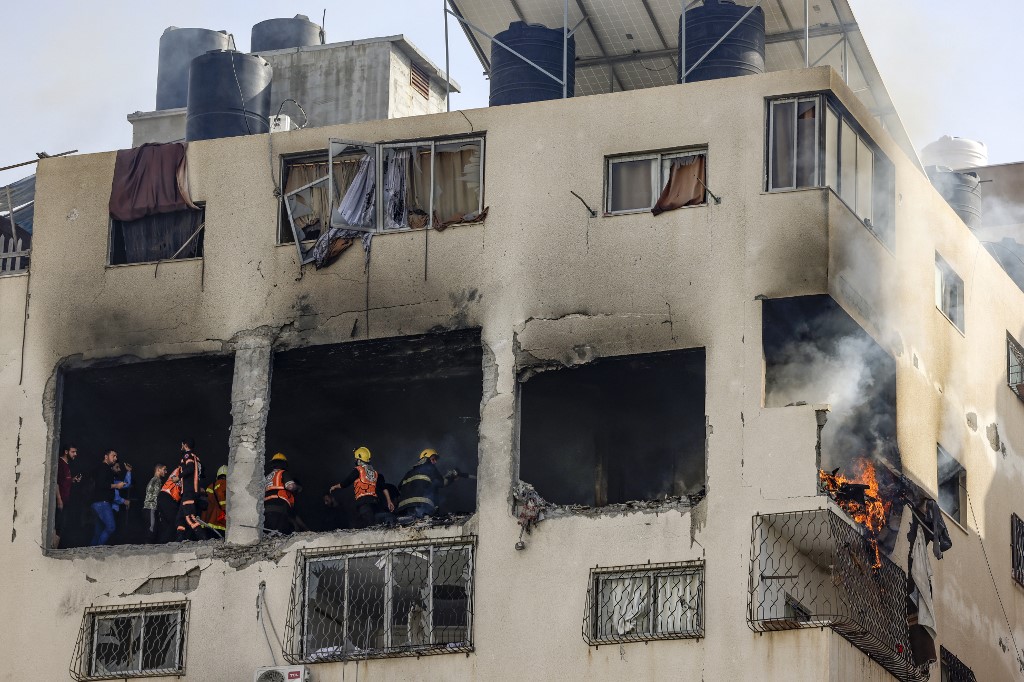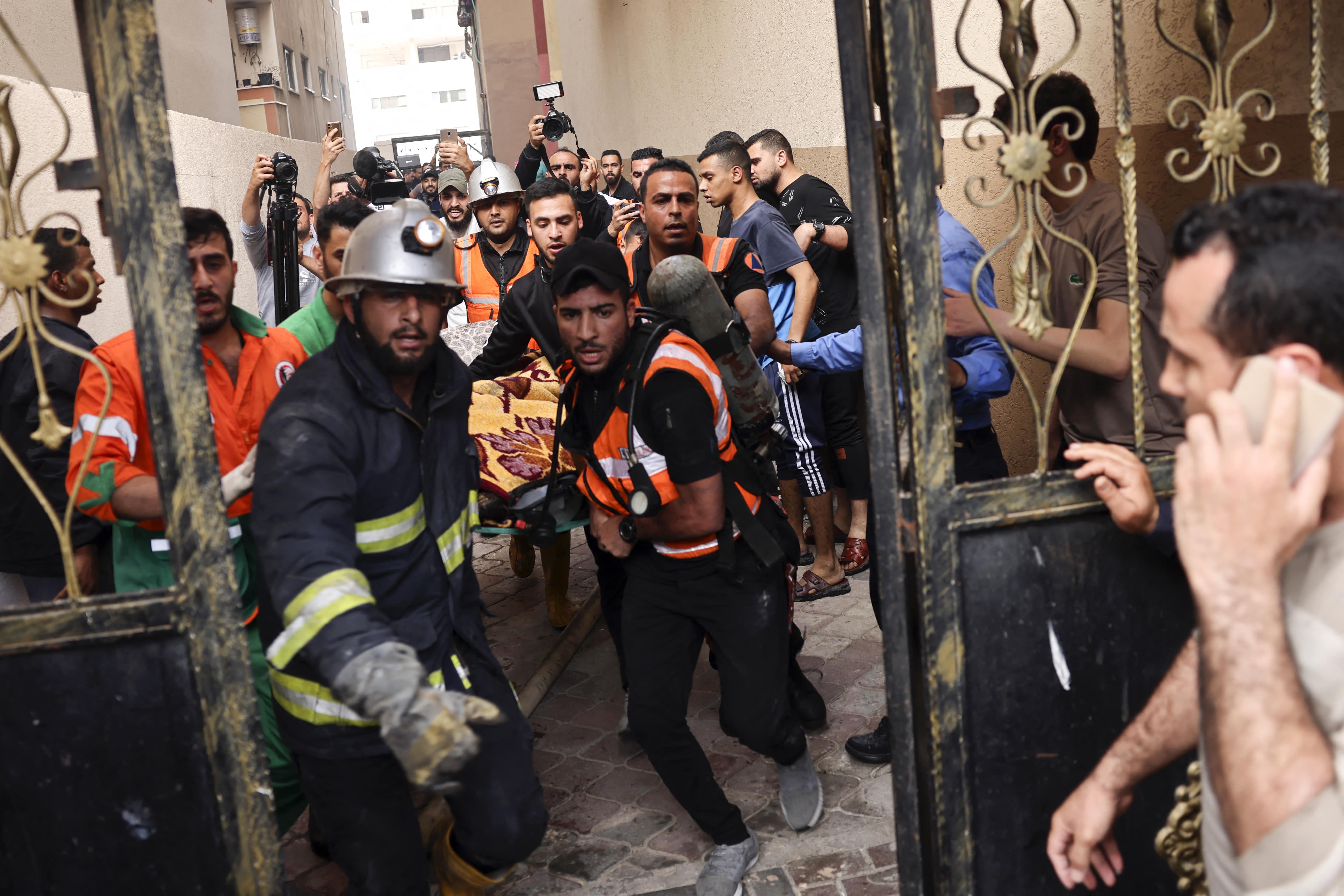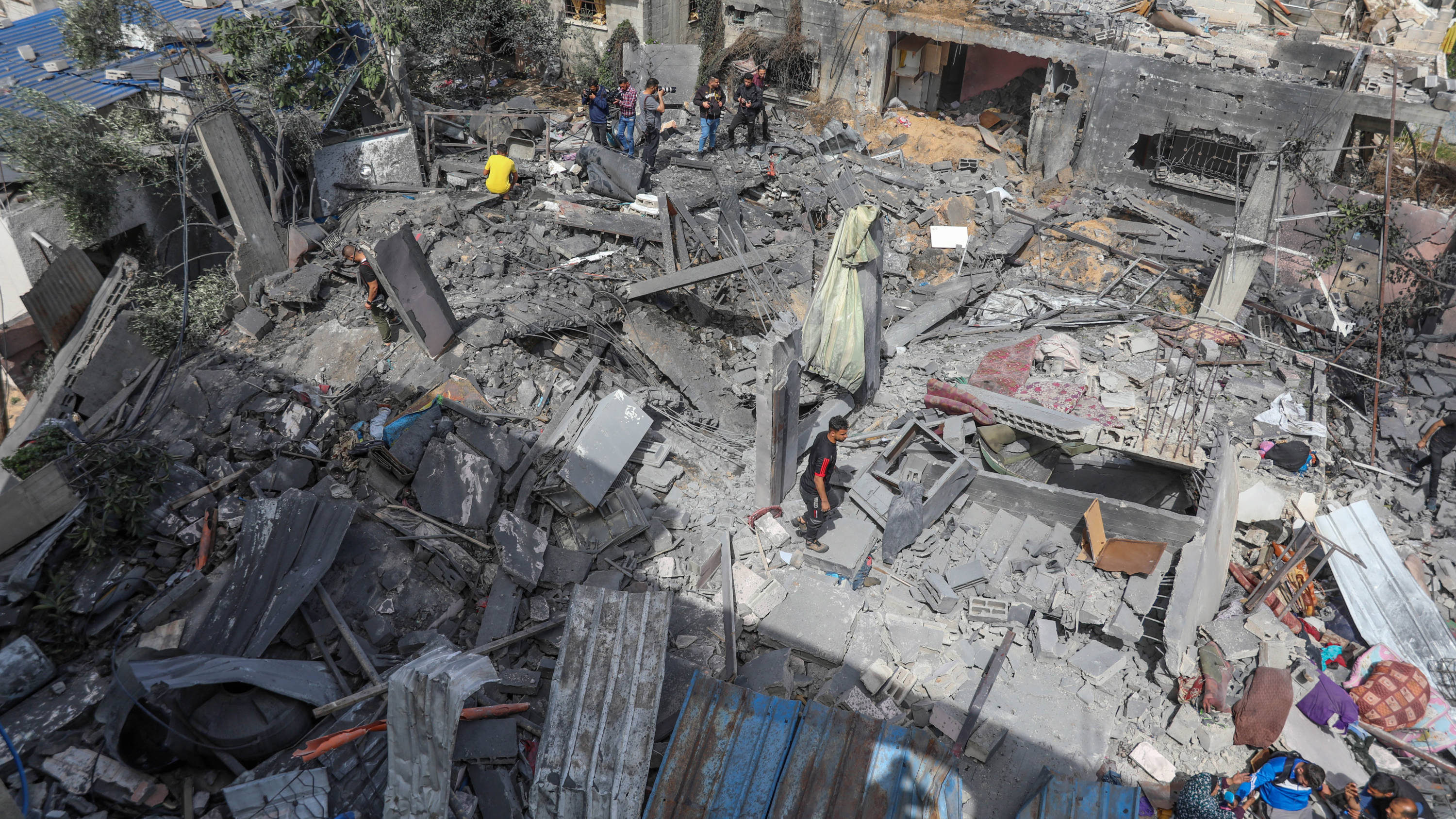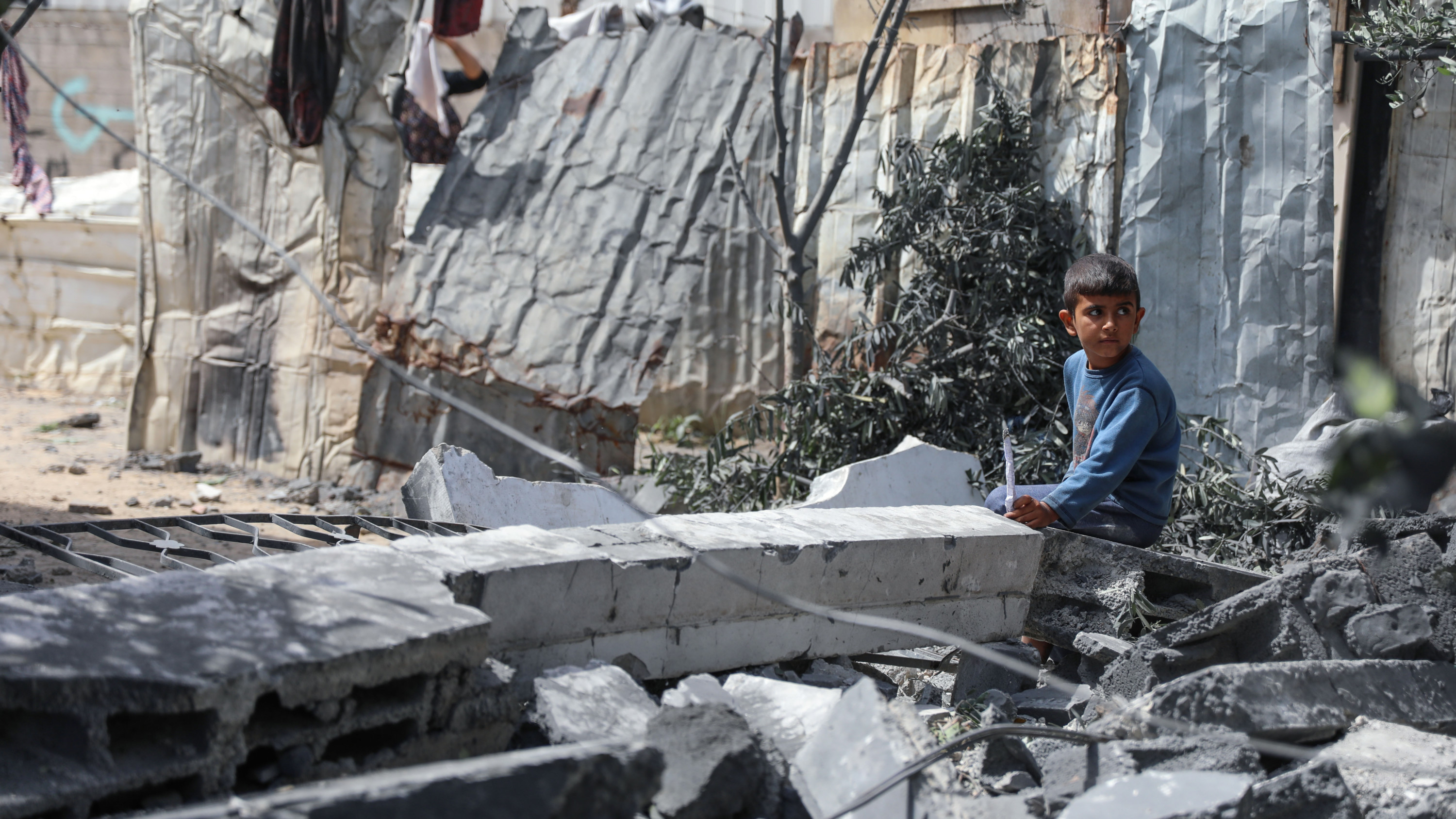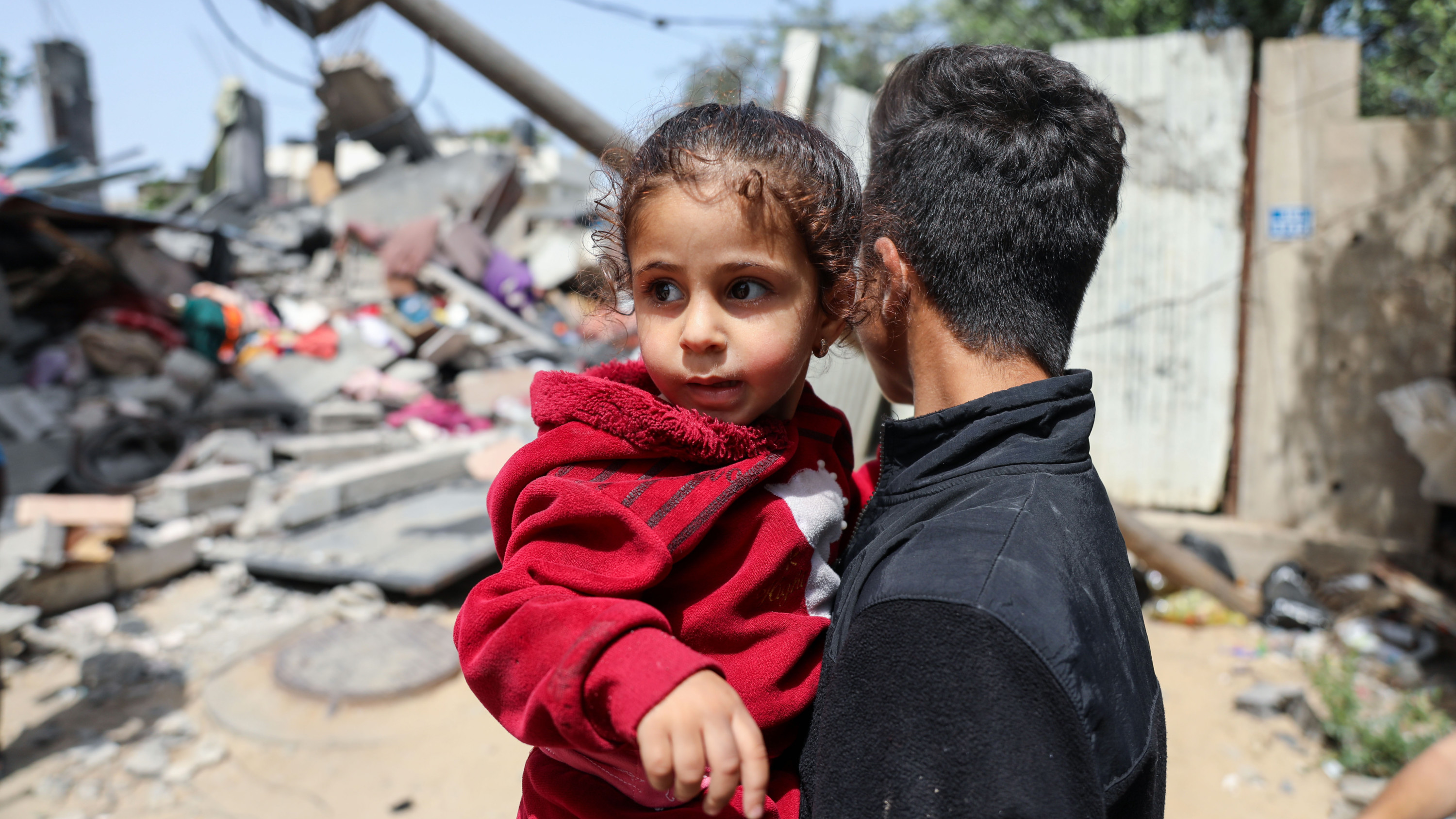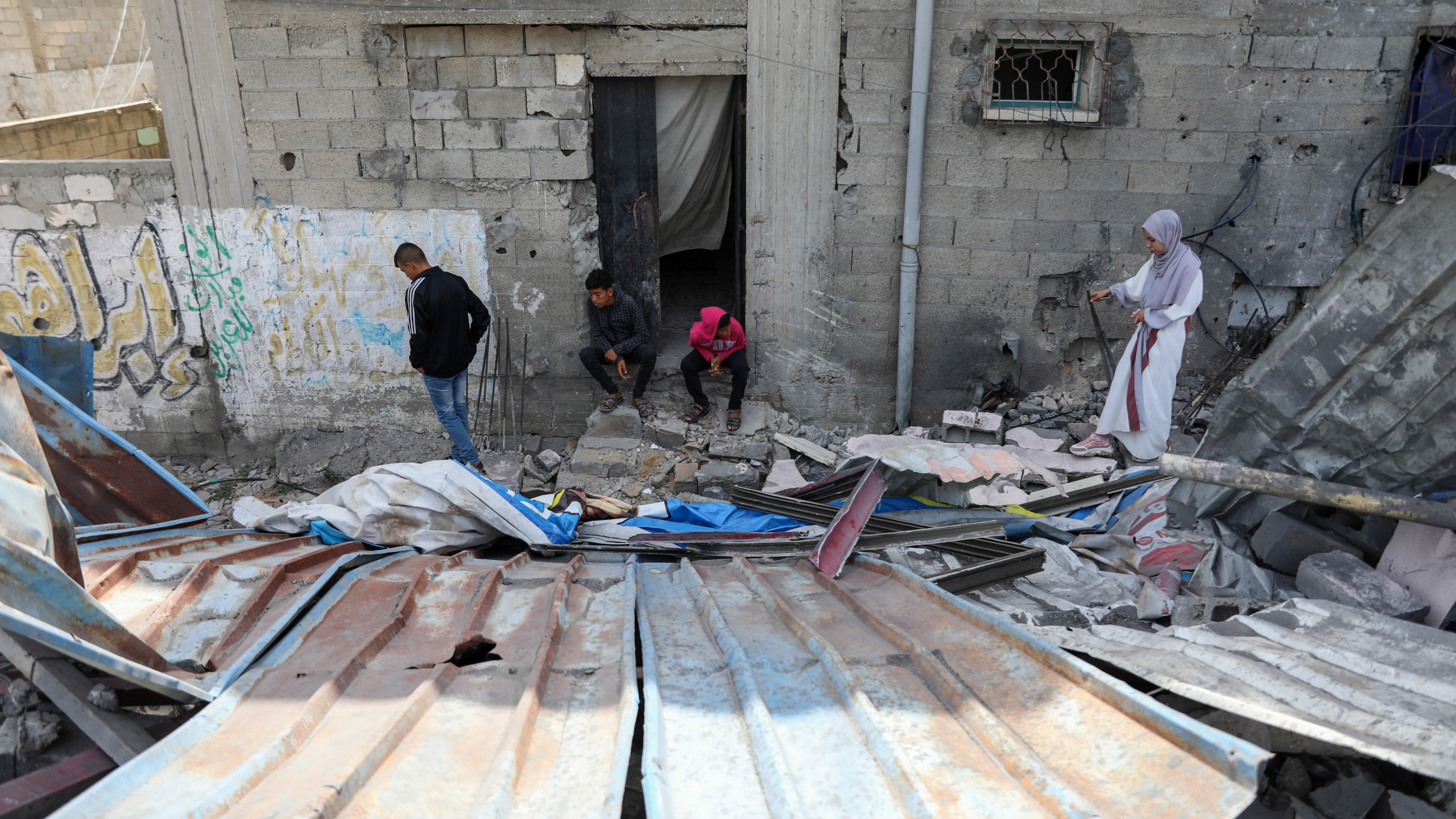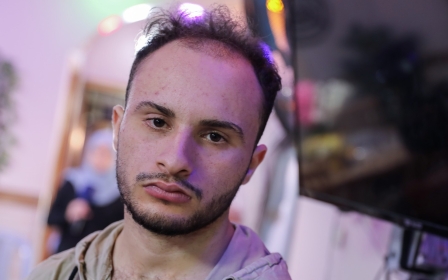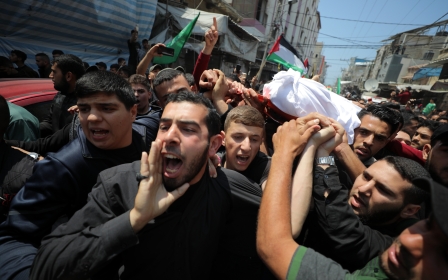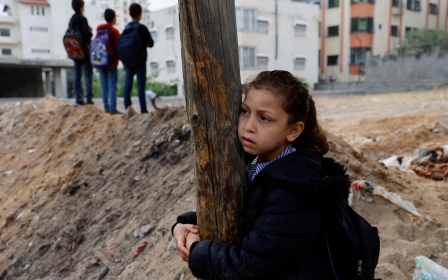Israel-Gaza live: Egypt mediates ceasefire to end Israel's assault on Gaza
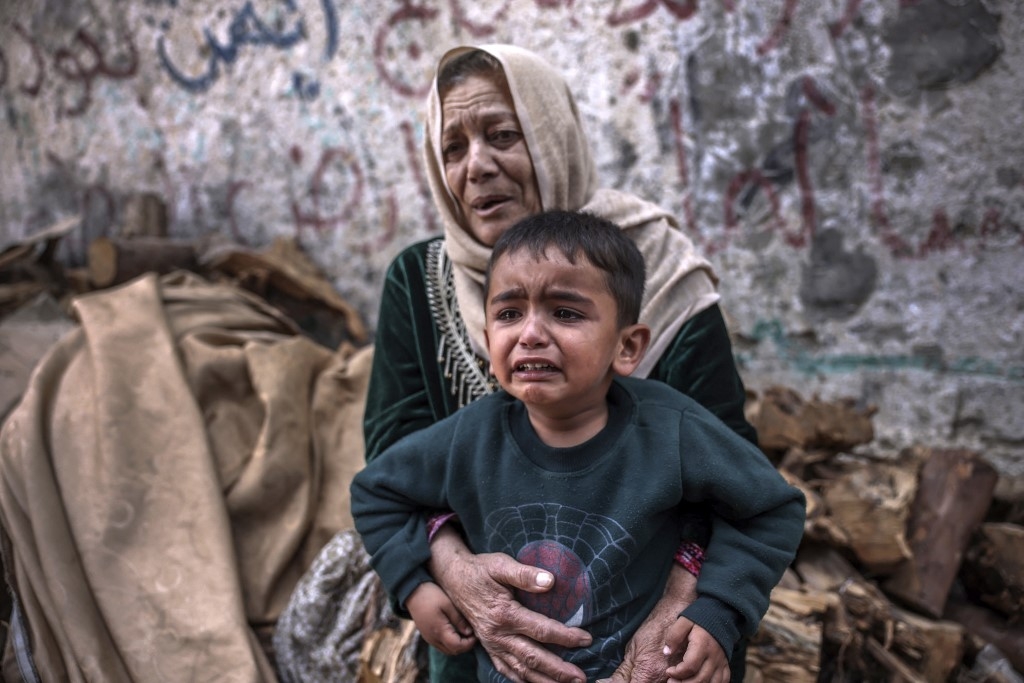
Mises à jour du direct
Far right Israeli Finance Minister Bezalel Smotrich said on Thursday that Israel will eventually have to reconquer the Gaza Strip as 15 military operations in two decades there failed to defeat Palestinian resistance groups.
Smotrich called Israel's constant fighting with Palestinian groups a "chronic problem" that must be dealt with once and for all.
“The time will probably come to return to Gaza, disassemble Hamas and demilitarise Gaza. This too will be carried out according to the broad interests and considerations of the State of Israel,” Smotrich said in an interview with Channel 14. “I believe the moment will come when there won’t be a choice but to reconquer Gaza.”
However, he added that it was not something being considered at the moment by the security cabinet.
His comments were echoed by National Missions Minister Orit Strock of the same Religious Zionism party.
“Israel fled twice from Gaza — the first time during Oslo, the second in the [2005] disengagement. This can’t be an acceptable security situation in Gaza,” Strock said in an interview with Kan news
“Looking long-term, there won’t be a choice but to do it [retake Gaza],” she added.
Israel unilaterally withdrew troops and settlements from Gaza in 2005 but maintained an air, sea and land blockade since.
An eyewitness to the deadly air strike on a residential building in central Gaza on Friday afternoon described a scene of horror and chaos as Israeli jets began their attack.
"I was at home playing with my children," said Khaled al-Hindi. "There was no warning or signs of any incoming strikes."
Then, out of nowhere, Hindi told Middle East Eye, the impact of the bomb was felt.
"The floor was shaking and the children started to run out. My mother, an elderly lady, fell over and was injured. She was taken to hospital for treatment," he said.
The strike hit a flat in a seven-storey building where around 20 families lived, most of whom were children.
At least two people were killed, including a senior Islamic Jihad commander.
"I saw them pull out a body from a building. I'm just glad we are safe," Hindi said.
Israel has renewed its targeting of residential areas in Gaza for the fourth day, leaving hundreds of people homeless and living in fear of the next attack.
A widespread sense of panic has gripped Palestinians, as they have been left with nowhere to go.
Many are searching for loved ones and belongings among the rubble of their homes.
Here, we look at the aftermath of the shelling.
As Israeli hopes for a ceasefire seemed high on Friday morning, Palestinian rockets fired from Gaza at settlements in occupied East Jerusalem came as a major shock.
According to Mukhaimar Abu Sa’da, a political analyst and professor at Gaza's Al-Azhar University, the salvo carried a strong message.
“Launching rockets towards Jerusalem is a way to pressure the Israeli occupation to agree on the Islamic Jihad’s terms for the ceasefire, including to stop the killing of civilians,” Abu Sa’da told Middle East Eye.
For Israelis, targeting Jerusalem is seen as a "red line", even more so than hitting Tel Aviv, Abu Sa’da said.
“The message is that the [Islamic Jihad] are ready to launch more long-range rockets if [Israeli Prime Minister Benjamin] Netanyahu doesn’t agree to end the policy of assassinations,” he added.
Palestinian groups have maintained that the fighting will continue until Israel commits to stop the targeted killing of military leaders and civilians.
As Israel resumed its heavy bombardment of Gaza on Friday afternoon, more homes were destroyed and more people were made homeless.
“My house was bombed… many of the homes have eight or so people in them,” Abdelkader Taha, whose house in Khan Younis was levelled, told Middle East Eye.
“The building had two apartments upstairs and two on the ground floor. This is the third time we have been displaced because of Israeli shelling,” he added.
At least 28 housing units have been destroyed since the start of the Israeli offensive on Tuesday.
Taha’s family home was damaged in the Israeli offensive in Gaza in 2014, forcing them to rebuild their lives from scratch.
“They are chasing us everywhere,” he said, while waiting in the streets for the bombardment to stop.
At least two Palestinians were killed on Friday afternoon after Israel renewed heavy shelling across Gaza, mainly targeting residential buildings.
According to local media, a seven-storey building in the crowded Nasr district in central Gaza was hit, leaving at least 10 casualties.
Medics said two were pronounced dead at the scene.
The Israeli military resumed heavy shelling across Gaza, targeting several residential buildings.
Middle East Eye correspondents said several explosions were heard across the besieged enclave, with at least one four-storey building being hit. The residential buildings housed three families.
Al Jazeera Arabic reported that at least one home was completely destroyed in Khan Younis.
Local media posted footage showing a residential building near Gaza City in flames after an Israeli air strike.
Initial reports say the shelling has left a number of casualties.
The Israeli military said it was targeting Palestinian Islamic Jihad sites, including what it claimed are command centres situated in residential buildings.
The Gaza Electricity Authority has warned the besieged strip could face critical power outages within 72 hours due to a lack of diesel fuel for the sole power plant in the enclave.
Since 9 May, Israel has completely closed the crossings connecting it to Gaza, halting the entry of essential products into the enclave, including fuel and gas.
Any disruption to Gaza’s fuel supply will compound the dire situation created by the ongoing Israeli bombardment in the strip for four days.
Due to the 16-year-long Israel-led blockage of Gaza, the enclave already suffers from a "chronic electricity deficit" which has resulted in increasing fragile living conditions for the population, according to the United Nations Office for the Coordination of Humanitarian Affairs (OCHA).
The regular power outages in Gaza have already “severely affected the availability of essential services, particularly health, water and sanitation services, and undermined Gaza’s fragile economy, particularly the manufacturing and agriculture sectors,” OCHA has previously said.
The Palestinian Islamic Jihad’s spokesperson, Dawud Shihab, told Middle East Eye that Israel is refusing to commit to a ceasefire to end its four-day offensive.
Speaking to Middle East Eye correspondent in Gaza Ahmed Al-Sammak, Shihab said the rockets launched earlier on Friday at settlements in occupied West Bank and East Jerusalem were to send a message to Israel.
“The launching of rockets close to Jerusalem is a message that resistance groups are watching what is happening, particularly ahead of the Flag March which will take place soon,” he told MEE.
He added that Palestinian groups don't have "huge demands" for a ceasefire agreement.
"All we ask for is that Israel complies and ceases the killing and targeting of people,” he said.
While talks of a ceasefire have been circulating since the fighting started four days ago, Shihab says that what is happening on the ground tells a different story.
“On the ground, there is an ongoing battle which has not yet stopped,” he said. “We are getting closer to achieving our goals, and stopping Israel from achieving what it wants.”
As the Israeli offensive in Gaza enters its fourth day, Palestinian survivors of air strikes are reeling from the continuous bombardment.
“We heard warnings from Israel to vacate and then the shelling started,” Inshirah Matar, an elderly lady from Gaza, told Middle East Eye.
“The shelling started at sunset, we were just sitting at home and we had phone calls telling us to run for safety. We didn't take any of our things, we had to leave everything behind,” she added.
According to residents who spoke to MEE, the shelling targeted family homes, many of which housed young children.
“The area is overpopulated, we all live close together and the homes are filled with elderly people and young children,” she said.
According to the eyewitness, residents were forced to wait out in the streets from around 4pm to 8.30pm, as they watched their homes destroyed.
“We watched windows smash, and many of us were afraid. I fell and needed to be taken to hospital, while the children were screaming and wetting themselves at night from fear.”
As of Thursday, 19 housing units were destroyed, 28 became uninhabitable and 286 were damaged, according to the Gaza-based Palestinian Government Media Office.
A commander in the Palestinian Joint Command, an umbrella body of armed factions in Gaza, including Hamas and the Islamic Jihad, said the body chooses when and where to respond to the Israeli aggression after a barrage of rockets was fired at settlements in the occupied West Bank and East Jerusalem.
Speaking to Al Jazeera Arabic, the commander, who was not named, said the command "thwarted" the Israeli strategy of trying to isolate the Islamic Jihad in its attacks.
"We are managing the battle well and have thwarted the enemy's plan by isolating the Islamic Jihad's Al-Quds Brigades. We determine the time and place of our response as we see fit," the commander said.
Israel has left indirect ceasefire talks mediated by Egypt, according to Israeli media reports.
It comes after a barrage of rockets was fired from Gaza towards major settlements in the occupied West Bank and East Jerusalem.
According to Haaretz and the Times of Israel, officials have said ceasefire talks are no longer taking place and promised a "severe" response.
"And if we need to escalate, we’ll do it," an Israeli official said, according to the Times of Israel.
Videos shared online showed Israeli settlers seeking shelter from rockets, as sirens sounded in settlements in the Jerusalem area and the occupied West Bank settlements on Friday afternoon.
While there have been no reported injuries, photos and videos shared online show Israeli settlers scrambling for safety.
The rockets targeting Jerusalem, one of the biggest barrages by Palestinian groups since the start of the Israeli offensive, ended a 12-hour lull in fighting.
Palestinian groups in Gaza fired rockets towards Israeli settlements in the occupied West Bank, including Jerusalem, ending a 12-hour lull in fighting.
Rockets sirens were sounded in Jerusalem and in Gush Etzion, a major block of Israeli settlements near the Palestinian city of Bethlehem.
At least one rocket landed inside the settlement of Bat Ayin, according to initial reports.
There were no immediate reports of injuries.
Incoming rocket sirens were also heard in southern Israeli cities near the Gaza frontier.
Human rights organisations have made an emergency appeal to Israel to halt attacks on the civilian population in Gaza and open the Beit Hanoun (Erez) and Karem Abu Salem (Kerem Shalom) crossings to humanitarian assistance.
Beit Hanoun and Karem Abu Salem, which Israel controls, are Gaza’s main lifeline to the outside world.
The appeal by Physicians for Human Rights Israel, Al Mezan Center for Human Rights, Adalah, and Gisha came as Israel’s assault on Gaza entered its fourth day leaving at least 31 Palestinians dead and almost 100 more wounded.
Since 9 May, Israel has completely closed the crossings of the Gaza Strip. Not even the entry of essential products is allowed, including fuel and gas. The exit of people has also been halted, including for urgent and life-saving medical and humanitarian services.
“Israel prevented 292 patients from leaving for treatment outside the Gaza Strip. Most of them are cancer patients and 15 of the patients were required to leave in order to receive life-saving treatment and now their lives are at a standstill in real danger” as a result of Israel’s total blockade, the statement added.
“Attacking civilian targets and denying people and vital supplies from entering and leaving Gaza – including those injured in the assault – are expressly prohibited by international law. These infringements indicate a severe violation of the rules of warfare and may even constitute war crimes,” the statement concluded.



